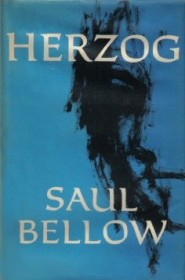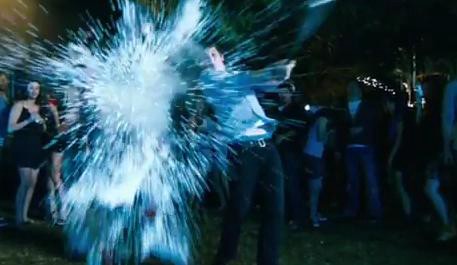Saul Bellow And The Malevolent Friend
by Evan Hughes

When Saul Bellow got an invitation to rejoin the faculty at the University of Minnesota in 1958, he and his second wife, Sondra, were ready for a change of scene from their Hudson Valley house (“could use TLC”), and they needed the income too. Although Bellow had already won his first National Book Award with The Adventures of Augie March, he followed in a long line of writers who discovered that you could be famous without having money.
Nevertheless, Bellow put forward one condition before taking the job in Minneapolis. The university had to find a position for his closest friend, Jack Ludwig, a writer and a colleague from Bellow’s time at Bard College. Ludwig, whose worship of Bellow made him an appealing friendship candidate, lived nearby with his wife, Leah Leya, and the two couples were forever seen together. Apart from Bellow’s editor and his wife, the Ludwigs were the only guests at the Bellows’ wedding.
Landing that job through Bellow’s help was a godsend for Ludwig, because Bard had no intention of keeping him on the next year. Also, this way he could keep having sex with Bellow’s wife.
Just about everyone, it seems, knew that Ludwig and Sondra were having an affair before Bellow did. His blindness was astonishing; even he thought so in retrospect. Bellow’s marriage had fallen into trouble there in the countryside, where he expected Sondra, a formidable woman, to be the doting housewife and help take care of the “old ruin” of a house in Tivoli. She was lonely and pissed off. They fought over her spending, and she fell into the habit of criticizing Bellow’s sexual prowess to their friends. Meanwhile she spent a lot of time with Ludwig. He had a robust vitality, despite a pronounced limp, and had penetrating eyes and a booming voice, according to a colleague. While Bellow was at work revising Henderson the Rain King on a tight schedule before moving to Minnesota for the job, Sondra and Ludwig took an advance trip there together. To look at real estate, you see.
Ludwig played the admiring friend and confidant with Bellow, to the point of giving marriage-bed advice, while all along he was otherwise flagrantly indiscreet about his relationship with Sondra. In his insightful and bracing biography Bellow, James Atlas writes that someone approached Ludwig at a party and said, “I understand you know Saul Bellow,” to which Ludwig replied, “Know him? Hell, I’m fucking his wife.” Who does that? “There was something very malevolent about Jack,” Anthony Hecht told Atlas.

Ludwig wrote sports books and derivative novels in the Bellow-Roth mode that have fallen out of print — Atlas calls him “painfully short of talent” — and perhaps he acted out of resentment that he needed Bellow to carry him through several troughs in his career. Some of Atlas’s sources make a rather different claim — that the affair was some gesture born of Ludwig’s adoration for Bellow, a seriously perverse tribute: “If he couldn’t go to bed with Saul, he’d go to bed with his wife.”
Some responsibility should also be ascribed to Bellow, who was always gathering personal turmoil around him and seemed to thrive on it. In an email to me, Atlas said, “Ludwig — let’s just be overly familiar and call him Jack — was a sociopath, Bellow a collusive and masochistic artist of disorder; I think my interpretation is right there.”
When Bellow finally learned of the affair (through some slip-up when the two couples were making plans), he was murderously angry and spoke of getting a gun. He drafted a blistering letter to Ludwig, but in it, as Atlas observes, Bellow avoided direct confrontation over the “ugliness” that “I don’t want explained,” and his tone had a curious showman’s bounce to it:
It wouldn’t do much good to see matters clearly. With the sharpest eye in the world I’d see nothing but the stinking fog of falsehood. And I haven’t got the sharpest eyes in the world; I’m not a superman but superidiot. Only a giant among idiots would marry Sondra and offer you friendship. God knows I am not stainless faultless Bellow. I leave infinities on every side to be desired. But love her as my wife? Love you as my friend? I might as well have gone to work for Ringling Brothers and been shot out of the cannon twice a day. At least they would have let me wear a costume.
Bellow’s more sustained and considered response to being so dramatically cuckolded was all his own — amusing, in questionable taste, and brilliant — and in no small way it helped him win the Nobel Prize. He made Sondra and Jack’s affair the very engine of his next novel, Herzog, which won another National Book Award after selling nearly 150,000 copies in hardcover. Atlas said to me, “Herzog is my favorite novel of Bellow’s — the one in which he was most himself.”
In his biography, Atlas notes that Bellow had already conceived of a novel about a duplicitous marriage. (Perhaps on some level he knew?) But now Bellow had his material in all its incredible salaciousness, and he did not hesitate to use his life (nor the lives of others) in his fiction.
The novel of course enacted some revenge, and early drafts, written as Sondra and Ludwig carried on with their affair, are shot through with even more anger. But Bellow somehow held on to the ability, as Atlas points out, “to look upon his personal travails with detachment, experience them as theater.” For the sake of Herzog as art, it was a crucial character trait. A note to self by Bellow’s fictional stand-in, Moses Herzog: “On the knees of your soul? Might as well be useful. Scrub the floor.”
Reading Herzog side by side with Bellow, it’s striking that in the novel Herzog’s wife, Madeleine, and particularly her lover, Valentine Gersbach, do not come off worse than they do. Granted, Herzog harbors a desire to kill them both, but his emotional EKG is all over the chart, and at times his sense of fairness is surprising. In pain he turns repeatedly to pondering Gersbach’s charisma and energy, his skill as a family man, even his looks, and Herzog chews over his own failings a great deal: “Resuming his self-examination, he admitted that he had been a bad husband — twice.” This was certainly true of Bellow, ever a philanderer himself. (By the end he had married five times.)
Bellow also makes the interesting decision to demote himself, making his protagonist not a prestigious novelist but a stalled academic, while Gersbach has a good career in radio. Maybe that escalates the self-pity, but the easy route would have been a grandstanding revenge fantasy with an overmatched opponent (“How Bellow Got His Groove Back”). When Bellow stages a scene where a friend tells Herzog of the affair, again Bellow gives no thought to his own dignity. Herzog is not knowing and wise in acceptance of his brutal fate. He’s completely blindsided, uselessly protesting, pathetic.
The great conceit of the book is that in the wake of his humiliation, Herzog decides to write letters — to relatives, to the New York Times, to the President, to Heidegger — because he feels “the need to explain, to have it out, to justify, to put in perspective, to clarify, to make amends.” Herzog picks himself off the “malodorous sofa” because “Grief, Sir, is a species of idleness,” and he gives energetic voice to the roiling stew of a mind in crisis.
Once more Bellow captivates with the high-spirited style, found not only in that letter to Ludwig but also most memorably in Augie March: “I am an American, Chicago born — Chicago, that somber city — and go at things as I have taught myself, free-style, and will make the record in my own way.” But in Herzog, the backdrop of personal defeat lends a poignancy to the humor that feels true. Even while Bellow mines his own pitiable condition for a laugh or three, it never comes off as shtick. It feels like a triumph of the human comedy over human sadness, a triumph Jack Ludwig could never avenge.
Previously: The Architect, The “It” Girl And The Toy Pistol That Wasn’t, Larry David’s Rough Night Out With The Aging Literary Lion and The Cordial Enmity Of Joan Didion And Pauline Kael
Evan Hughes’ book, Literary Brooklyn, a work of literary biography and urban history, has just been published. He’s on twitter.
How Christian Terrorists Keep Wichita Abortion-Free

“A letter arrived from an antiabortion activist who befriended Scott Roeder, the man convicted of killing Dr. Tiller, after he went to prison. That letter, now in federal hands, warned Dr. Mila Means to check under her yellow Mini Cooper for explosives before turning the key.”
— Terrorism is why you still can’t get an abortion in Wichita.
Kids Today Like Velcro, Smartphones
“As many as 45 per cent of children aged between five and 13 can’t tie their shoe laces — but 67 per cent can work a DVD player, according to a poll.”
Marco Rubio Loves Illegal Immigrant

Republican politicians like Marco Rubio and Ileana Ros-Lehtinen are springing into action to keep illegal immigrants in the US of A! These illegals who are here to leech off our system include a local Florida high school valedictorian with a 6.7 GPA (!??) and her brother, who just returned from a tour of duty in Afghanistan. When will these foreigners stop sneaking into our country and taking our jobs (as valedictorians and as soldiers in unpopular wars)?
The Way We Rock Now
“A music industry seeking to diversify as physical sales fall has hit upon theme parks, which attract millions of thrill-seeking youngsters each year, as a potential new source of revenue. In a groundbreaking deal, EMI-signed alt-metal band You Me At Six will record the first original soundtrack dedicated to a roller-coaster ride.”
'Project X': Why Doesn't Hollywood Get Young People?

You’ve got to really open your heart to the long hard run of cruddy movies that stretches from January to May. If you succeed in opening it far enough, you’ll decide that Project X, the pre-frat frat movie about three high school losers throwing an “epic” (shudder) party, is nearly awesome — as a movie-going experience, at least. You know: low expectations. Oh and this is actually the entire plot so I am kind of spoiling it for you: a kid’s parents go out of town and he throws a really big party. Still, if you see it in the right frame of mind, with the right audience (a packed theater of 20-year-old boys mainlining Coke and nachos), you can laugh your face off. It’s funny! We should all live a little. Let’s get crunk and trash things! Is that not a message we can all get behind?
But what’s really confusing about the movie is how out of touch it is with The Kids Today. For a film that’s supposed to be a generational touchstone, a Revenge of the Nerds for 2012, it’s totally behind the times. The fact that the kids in it keep saying “epic” should be warning enough. Also, that the main character is singing a 2 Live Crew from 1989 in the beginning of the movie? Uh, no. These kids weren’t born yet in 1989?
Especially for a film directed by an Iranian Brit, who’s supposed to have done “hip” commercials and videos, it’s crazy retrograde. I expect the word “faggot” to get tossed around a lot in a film that’s about three straight guys trying to get laid, but in 2012 we never get a shot of, say, the gay dudes from the high school throwing down at the party? (Despite lingering girl-on-girl softcore tributes even!) Kids today, they like to say “faggot” and they like having homos at their party. And then it all takes place in Los Angeles county, but there’s barely a Mexican to be seen? Come on. Also I expect straight guys to talk about “pussy” a lot, but I also expect the girls to beat them down for it. Instead there’s a bunch of Mean Girls chicks strutting around and ripping off their tops in the pool. As if!
And then: the soundtrack features like, Kid Cudi songs from two years ago? A (very good) remix of a Yeah Yeah Yeahs song from summer of 2009? A J-Kwon song from… 2004??? Also the highlight of the party is that they all do ecstasy? LOL, it is not the 90s. That’s not awesome, that’s just tired. Considering the movie totally pays tribute to Australian party animal Corey Delaney, I guess it makes since that this hot Hollywood mess is years behind.
While half this garbage is funny, at least, the youths of our time deserve a sleazy, gross-out party movie that represents them, not this old man baloney. The kids deserve better.
Ideas for Elis and Emus

And here is something completely useless: a search engine for all 432,205 New York Times crossword clues since 1996.
Toola The Sea Otter, 1996(ish)-2012
“It was clear to everyone on the sea otter exhibit team that Toola, not me, was really in charge. When she wanted to work on something in a training session, she’d give me a ‘look’ or vocalize and I’d immediately cave in and do whatever she wanted. Now that she’s passed, we’re in need of another ‘head trainer’ to run the place.”
— Monterey Bay Aquarium associate curator of mammals Christine DeAngelo remembers Toola, the 16-year-old sea otter who passed away Saturday from the infirmities of age. Toola was found in 2001 on Pismo Beach suffering from neurological disorders. She received twice daily anti-convulsant medication at the aquarium and pioneered a groundbreaking program of nursing orphaned otter pups to maturity so that they could be released back into the wild. She raised 13 pups in her eleven years at the aquarium, five of whom are still alive in the wild, having their own pups and so helping the population of their threatened species to grow. While Toola apparently ruled her aquarium with an iron, webbed fist, she was instrumental in the passage of state legislation to protect Californean sea otters. As DeAngelo’s colleague Dr. Mike Murray went so far as to say, “I will argue that there is no other single sea otter that had a greater impact upon the sea otter species.”
